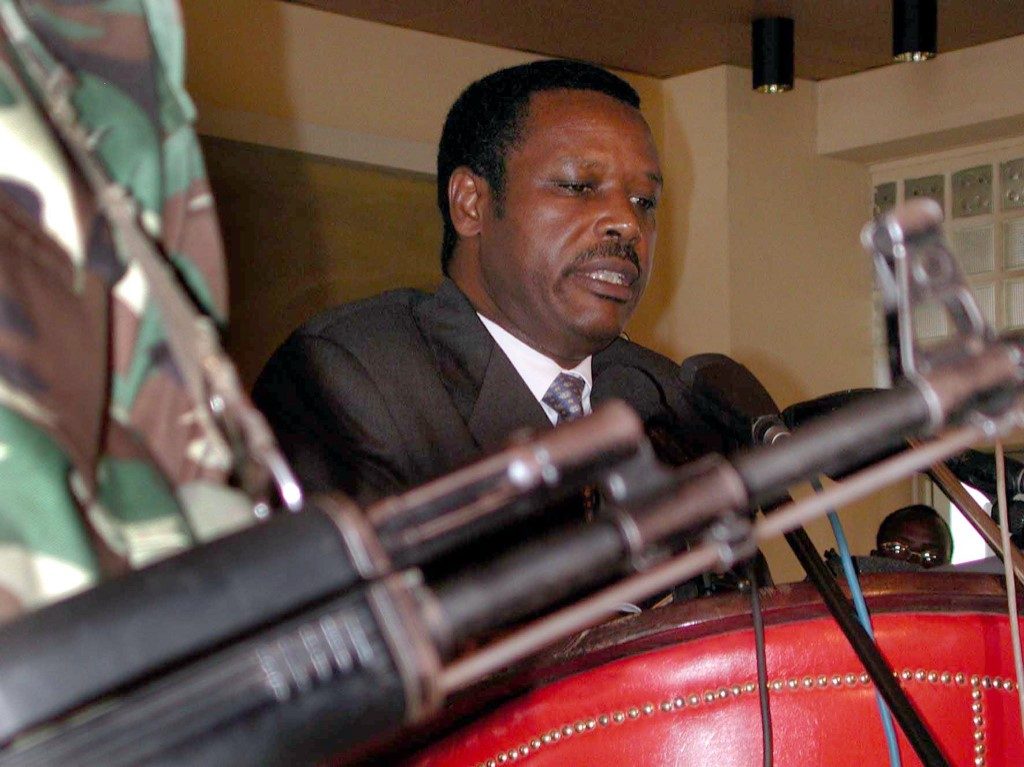SUMMARY
This is AI generated summarization, which may have errors. For context, always refer to the full article.

Burundi’s former president Pierre Buyoya said Wednesday, October 21, that he rejected a life sentence he received in absentia this week over the 1993 assassination of his successor, dismissing the case as politically motivated.
Buyoya was convicted on Monday for “an attack against the head of state” over his role in the death of president Melchior Ndadaye in 1993.
A court in Burundi sentenced him to life in prison, according to a ruling seen by AFP on Tuesday.
“We reject these judgements, which are in no way binding on us,” Buyoya, who is currently the African Union’s representative in Mali, said in a statement.
Buyoya, an ethnic Tutsi, first came to power in Burundi in a coup in 1987.
He stepped down in 1993 in the country’s first democratic elections in which Ndadaye, a Hutu, beat him resoundingly.
But hardline ethnic Tutsi soldiers killed Ndadaye just 4 months into the job.
His murder plunged the East African nation into years of civil war between the majority Hutus and minority Tutsis.
The section of the ruling seen by AFP does not give details on evidence provided against Buyoya, nor his alleged role in the killing.
In the statement on Wednesday, Buyoya dismissed the case against him and 18 other officials – who received the same sentence – as a “sham”.
“This case is a purely political trial,” he said, suggesting that Burundi’s current government was exploiting it for electoral ends.
He added that, among other problems, defense lawyers had been blocked from accessing case files.
“In other words, the evidence of the facts alleged against the defendants was never presented or demonstrated,” he said.
‘Slippery slope’
Since independence from Belgium in 1962, tensions between Hutus and Tutsis has boiled over repeatedly in Burundi, with a history of massacres.
The civil war between the two ethnic groups that followed Ndadaye’s murder saw an estimated 300,000 die by the time it ended in 2006.
After Ndadaye’s murder, Buyoya became president again after a coup, ruling from 1996 to 2003.
He is now a respected figure on the African continent as well as overseas.
But in November 2018 Burundi issued an international arrest warrant against Buyoya, which he denounced as “another diversionary move aimed at burying painful, unresolved questions” on a political crisis gripping the country after a disputed 2015 election.
The ex-leader also argued that the courts had already convicted the officers who killed Ndadaye. In 1998 a dozen low-ranking soldiers were convicted of the murder.
In Wednesday’s statement, Buyoya said the trial against him violated the 2000 Arusha peace accord that helped end Burundi’s civil war.
“The government is shouldering the heavy responsibility of breaking this pact and setting the country on the slippery slope of hatred, division and injustice,” he said. – Rappler.com
Add a comment
How does this make you feel?
There are no comments yet. Add your comment to start the conversation.